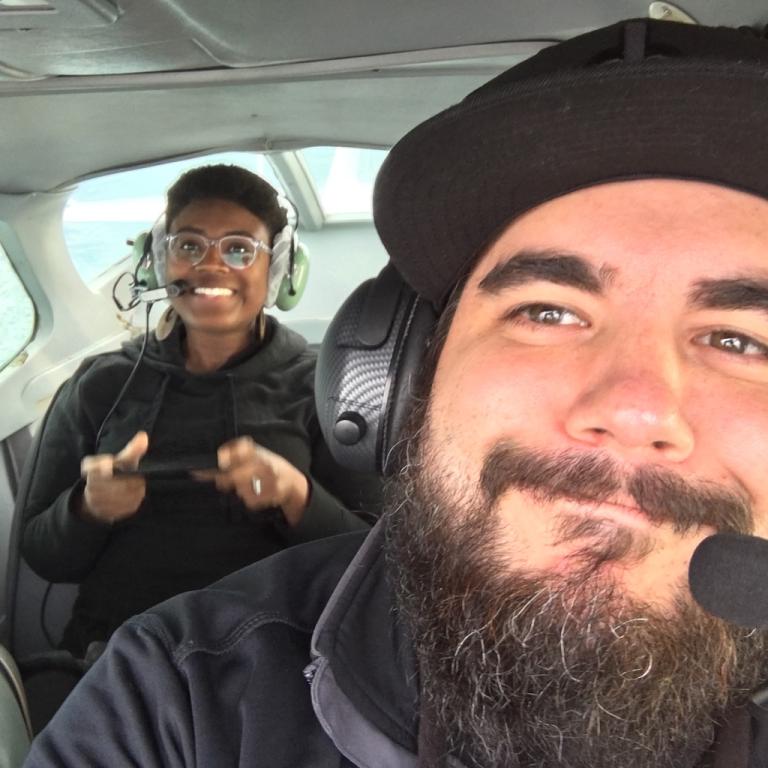News
Alumni-Community Faculty Spotlight: Ed Morales, MSW ‘13
“There is much to change, and it is so vital that our social workers are equipped with the tools, both practical and philosophical, to be the levers for that change…Our students, learning and graduating in a pandemic, are resilient. If they can do this, they can do anything. The future is bright.”

Why did you pursue your MSW, and what made you choose the University of MN program?
I originally wanted to join the Coast Guard, but for lots of fine reasons it didn’t quite work out. My partner at the time pushed me to have a Plan B, and that was a good idea, because when the Coast Guard fell through, my Plan B became plan A.
Social service runs through our family – my parents both served in the military (dad was a Marine, mom retired from the Army at a Lt. Colonel), and following her time in the military, my mom began a second career as a public health nurse – 40 years in various public-facing fields.
I chose the University of Minnesota because I was hoping to make the leap from rural Wisconsin to a major city. The U had a good reputation, and I was impressed with the initial welcome from the Field team.
Looking back, social work has offered me much – I have learned a great deal about how to live and be from the students and families I’ve worked with. My own development has been guided by generous mentors who were patient and kind with my own inexperience. Through my work, I met my kids, and through adoption became a first-time parent. Though I could not have predicted it, social work has changed my life in the most profound ways, and has pushed me to be better, do better, and grow, grow, grow.
Describe your professional role/setting(s) in relationship to the coursework you are teaching this semester.
I bring a variety of practice experience to my instruction of SW 8152: Methods with Families and Groups, and co-facilitation of 8020 Field Seminar. I worked as a school social worker for 6 years in a variety of charter and parochial schools, as a school- and community-based therapist, and over these years have worked with many children, adolescents, and their families. Today, I work with the Minnesota Child Welfare Training Academy as a staff trainer providing professional development to our state’s child welfare workforce. I also work as a social worker with Children’s Hospitals and Clinics of Minnesota, serve on the Subcommittee for Children’s Mental Health, and provide training and development through my LLC, Socorro Consulting.
As an alumni, with what lens do you approach your role as Community Faculty in the MSW program?
I believe it’s important that the curriculum both reflects and support the actual experience of on-the-ground social workers, while acknowledging that they are juggling many things – family, schooling, careers, internships, and more! I also believe the work should be hands on, and experiential. It’s been harder to accomplish this over Zoom, but I truly believe that the schooling experience should be rich in content but also as entertaining and engaging as can be.
My hope for our students is that they are able to spend their time in the program thinking about what sort of social worker they want to be, how they want to make changes to the community and the world, and how who they are impacts the work they do. I believe in focusing on personal reflection and conversation as we work toward developing our own practice.
There is a lot that is broken about our world. Too many of our neighbors and loved ones experience too much suffering, too much grief, and too much loss. There is much to change, and it is so vital that our social workers are equipped with the tools, both practical and philosophical, to be the levers for that change.
On March 2, 1955, Claudette Colvin, a 15 year-old girl in Montgomery, refused to give up her bus seat to a white passenger. She was arrested and taken to jail. Upon her release, Reverend HH Johnson picked Claudette up and told her, “Everyone pays for freedom. We’ve all been praying and praying. But you’re different – you want your answer the next morning.” I believe that we need more Claudette Colvins in this world and in this field. I hope we are graduating social workers who are looking for their answers the next morning.
How does the MSW program equip students with skills to advance the social justice values of our profession, especially in the context of a pandemic?
I have much respect for MSW students who have begun their program in the middle of a pandemic. It has felt daunting to build community and intimacy across a computer screen, but it seems that many of our students have been able to make it work.
Last year, when the pandemic hit, we had many meetings and discussions at the faculty and administrative level about what exactly we were supposed to do, now that our whole world had been upended. We settled on many options, but the theme through it all was working toward what we thought of as the humane option – moving toward our goals while dealing with a once-in-a-lifetime sort of experience. I appreciate that we were able to live the values in supporting our students while maintaining high expectations and allowing additional space to adjust to the new world.
Our students, learning and graduating in a pandemic, are resilient. If they can do this, they can do anything. The future is bright.
Learn more about Ed and all of our 2020-21 Community Faculty: